Campus Sustainability News
News on campus sustainability initiatives, emerging programs, rankings, awards, student initiatives, green teams, and more from across the Cornell University campus.
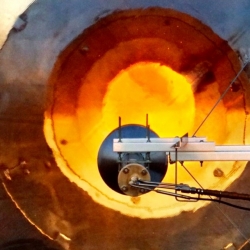
Dimensional Energy – a Cornell McGovern Center startup company that can capture industrial carbon dioxide and then convert it by way of sunshine into an environmentally friendly products like aviation fuel – has emerged as one of two finalists in the $20 million Carbon X Prize competition.
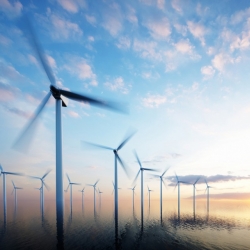
Cornell wind energy scientists have released a new global wind atlas – a digital compendium filled with documented extreme wind speeds for all parts of the world – to help engineers select the turbines in any given region and accelerate the development of sustainable energy. This wind atlas is the first publicly available, uniform and geospatially explicit (datasets tied to locations) description of extreme wind speeds, according to the research, “A Global Assessment of Extreme Wind Speeds For Wind Energy Applications,” published Jan. 25 in Nature Energy.

A Cornell engineer is advancing the field of ‘multi-sector dynamics’ with a new $1.4 million grant from the U.S. Department of Energy that will focus on techniques for better projecting the outcomes of human interactions with the natural world. As scientists and policy makers increasingly turn toward mathematical modeling to help inform their decision making, the project aims to better predict how human systems – such as the economy, urbanization, technology, and agriculture – co-evolve with Earth systems, such as climate, natural resources and wildlife.

Intro to Oceanography is one of the largest and most popular classes at Cornell University, with almost 1,100 students each semester. Taught by Bruce Monger, senior lecturer in the Department of Earth and Atmospheric Sciences, the era of COVID-19 and remote teaching presented Monger with an enormous challenge: How would he make his spirited lectures — peppered with climate activism and inspirational calls-to-action — as dynamic in a remote setting? Last summer, he reached out to Kathryn J. Boor, the Ronald P. Lynch Dean of CALS at the time, requesting funds to build his own in-home production studio to record lectures for Intro to Oceanography. Boor passed the request to Cornell’s senior leadership, where a new idea was born — to record the lectures with the professional support of eCornell, and in tandem, develop a publicly accessible oceanography and climate sustainability course, made available through eCornell’s online certificate programs.
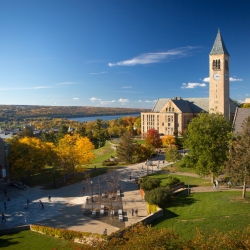
By delving into scientific, technological, environmental and economic data, Cornell Engineering researchers have examined whether New York could achieve a statewide carbon-free economy by 2050.
Their finding: Yes, New York can reach this goal – and do it with five years to spare.

The Campus Sustainability Office is hiring a graduate or highly qualified undergraduate student to become our AASHE Sustainability Tracking, Assessment, and Rating System (STARS) Student Coordinator. Paid position can be completed remotely during COVID19 conditions and begins late Spring '21 or Summer '21, with the possibility to extend through the following school year. Cornell is the only Ivy to earn a STARS Platinum rating for our campus' sustainability performance. Help us maintain it.

At a virtual community forum Jan. 19, a Cornell faculty and staff panel outlined the next steps for testing Earth Source Heat (ESH), the process by which water would be extracted from the Earth’s crust, its heat transferred to a separate supply of water flowing within Cornell’s heating distribution pipeline to heat most of the Ithaca campus buildings, and the original geothermal water returned to the subsurface
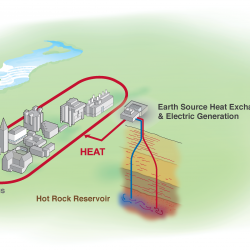
If Cornell can demonstrate it's feasibility and really make some headway with this enhanced geothermal system, it could be put into use in many parts of the Appalachians, and potentially in similar locales around the world.

Volunteer as an Energy Navigator! Accepting applications for the 2021 cohort. Application deadline: March 19th, 2021 .
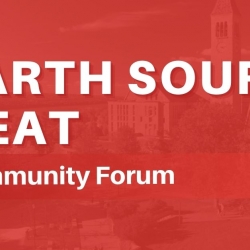
Cornell University will host a virtual community forum on Tuesday, January 19 from 6 to 7 p.m. to provide an update on the enhanced geothermal heating project which is central to the Climate Action Plan.
